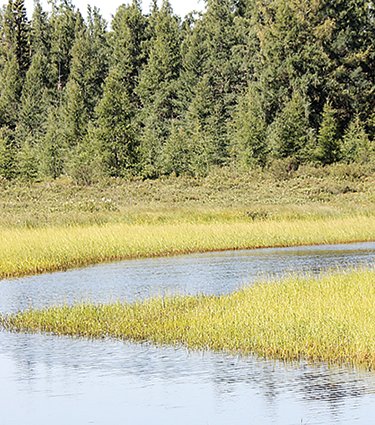Support the Timberjay by making a donation.
EPA: State must list impaired wild rice waters
REGIONAL—The federal Environmental Protection Agency has “disapproved” a portion of the state’s new list of impaired waters for failure to list certain streams and lakes …
This item is available in full to subscribers.
Attention subscribers
To continue reading, you will need to either log in to your subscriber account, below, or purchase a new subscription.
Please log in to continue |
EPA: State must list impaired wild rice waters
REGIONAL—The federal Environmental Protection Agency has “disapproved” a portion of the state’s new list of impaired waters for failure to list certain streams and lakes impacted by sulfates.
That decision was announced to the Minnesota Pollution Control Agency in a March 26 letter from the EPA’s regional office in Chicago. The story was first reported this week by MinnPost.
Tribal officials and environmental groups have pushed for years to have wild rice lakes and rivers that have higher levels of sulfate, mostly from mining discharges, added to the list of impaired waters. Yet, the Minnesota Pollution Control Agency has thus far refused to do so.
Sulfate, even at relatively low levels, has been shown to lead to the loss of wild rice in many cases. Minnesota is home to much of the wild rice found naturally in North America, which prompted state officials in the 1970s to adopt a strict wild rice standard for sulfate pollution in order to protect the unique resource.
But the 10 milligram per liter standard has not been enforced since its adoption and northern Minnesota tribes have been pushing the state for more than a decade to take a tougher stand in protecting wild rice. But the state’s mining industry has refused to accept regulation of the pollutant. Instead of limiting discharges of sulfates, the Legislature passed a series of laws beginning in 2015 that prohibited the MPCA from regulating sulfate pollution until it can create a new, less strict standard.
In objecting to the MPCA’s failure to list impaired wild rice waters, the EPA is contending that the laws enacted by the Legislature violate the Clean Water Act. That’s a position that tribes and environmental groups have argued for years.
The state is required to update its list of impaired waters every two years and the EPA has the authority to either approve or deny the list. States are also required to describe plans for clean-up of impaired waters.
With the MPCA refusing to take action, the EPA announced in its March 26 letter that it will be producing its own list of sulfate-impaired waters in Minnesota, which it will be providing to the MPCA before the end of April. The EPA will then hold a 30-day public comment period on the proposed list.






